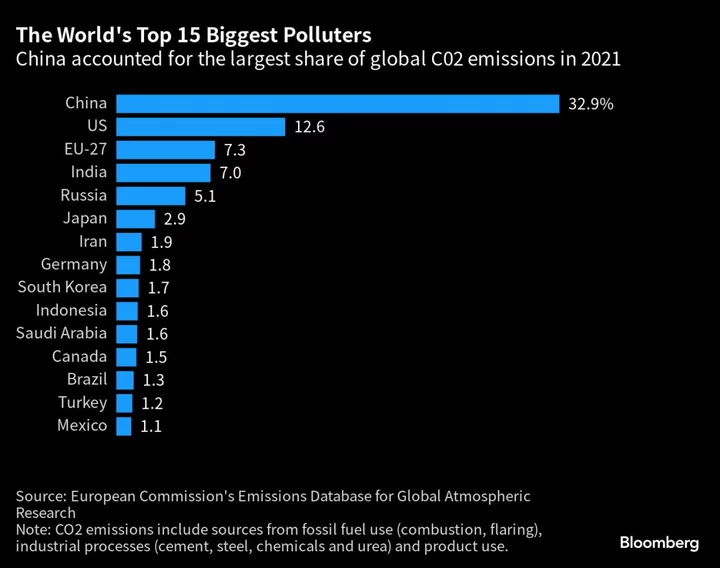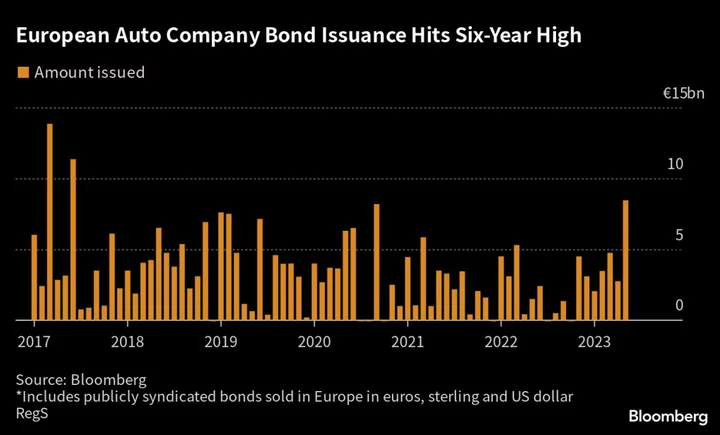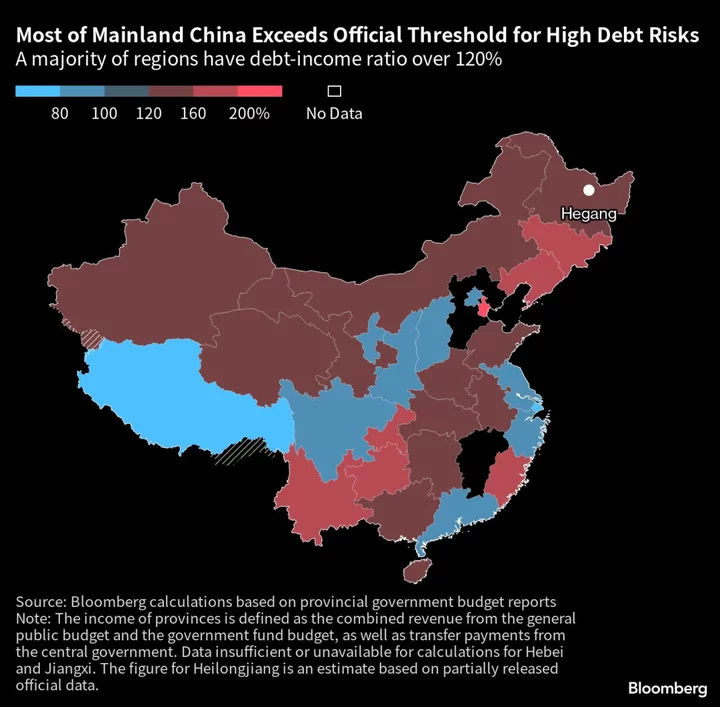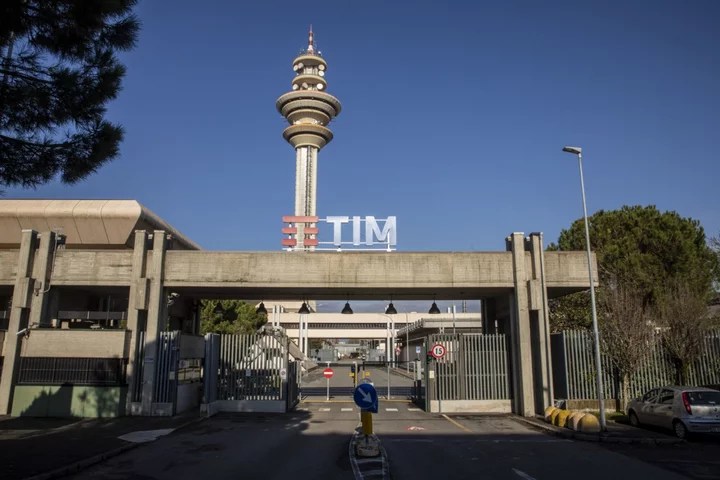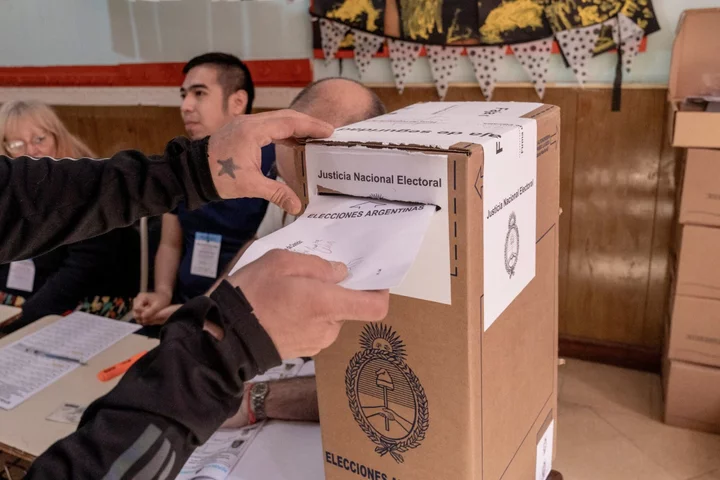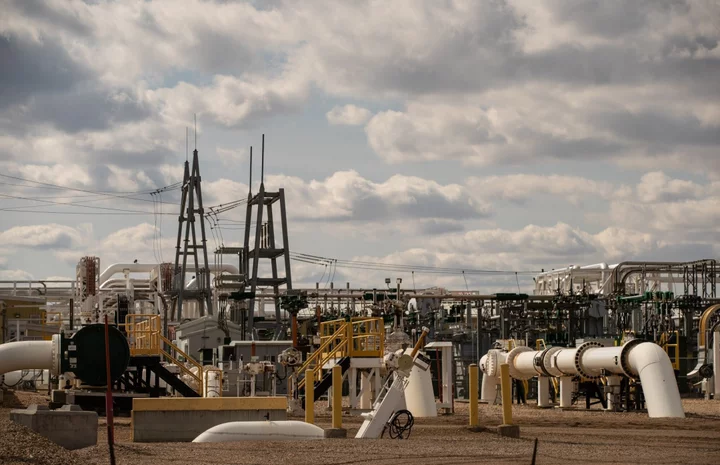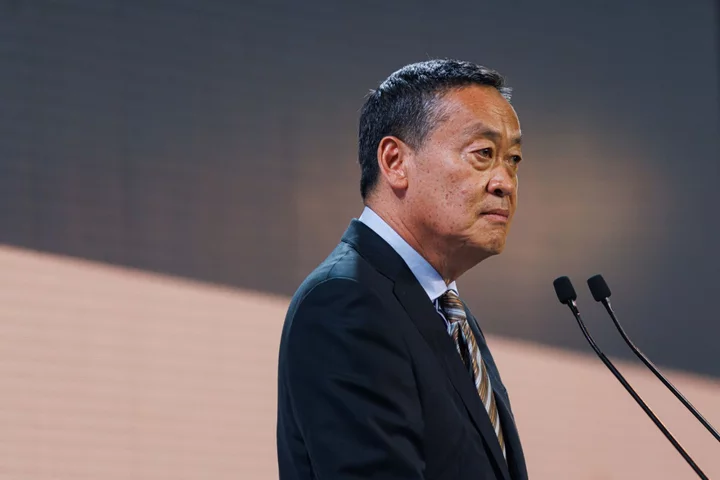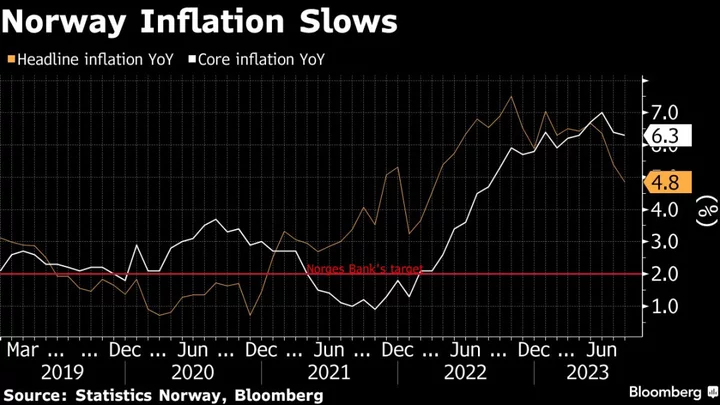Washington and Beijing need more time to “break new ground” in their shared mission to combat global warming, US climate envoy John Kerry said, following three days of talks in Beijing that ended without sweeping new commitments but forged deeper alignment over the need to pare coal-fired power.
“We got a long way with it,” and “we just ran out of administrative time and capacity to chase it down,” Kerry said in an interview after negotiations ended for the week. “But we’re in the chase.”
China and the US instead committed to “work intensively in the weeks ahead,” with talks proceeding on an “accelerated” schedule ahead of a critical UN climate summit starting this November in Dubai.
Initial conversations are set to focus on integrating renewable power to scale down the use of coal-fired electricity, Kerry said. Both countries also are committed on finding ways to better address methane and other greenhouse gas emissions, going beyond carbon dioxide, as they lay a foundation for formal 2035 climate pledges under the Paris Agreement.
The meetings between Kerry and his Chinese counterpart Xie Zhenhua this week provided a key opportunity to reset bilateral relations and make progress on the issue nearly a year after then-US House Speaker Nancy Pelosi’s controversial visit to Taiwan scuttled plans for a retreat, a working group and other collaboration on stemming planet-warming pollution.
Kerry stressed that negotiators did not want to rush out a joint statement that wouldn’t “result in significant action.” The goal is to do something “real” and “compelling” and “we’re not just putting words on paper.”
Still, the lack of a grand declaration is a setback for global climate negotiations, whose success so often depends on alignment between the US and China, the world’s top two greenhouse gas emitters. Even as talks were ongoing in Beijing, Chinese President Xi Jinping stressed that the nation will not let outsiders dictate its carbon-cutting path — further underscoring the difficulty in finding consensus.
China remains committed to goals of peaking greenhouse gas emissions by the end of the decade and hitting net zero by 2060, yet the country’s approach, method, pace and intensity in achieving those targets “must be determined by ourselves, and will never be influenced by others,” Xi said Tuesday at a national environmental conference, according to state broadcaster China Central Television.
Read More: Xi Says China to Decide Its Own Path to Reduce Carbon Emissions
US-China collaboration has helped pave the way for global climate pacts, including the 2015 Paris Agreement and an accord inked in Glasgow two years ago.
“It will be important the two countries can find a way to send a collective signal” before the COP28 summit in Dubai, said Thom Woodroofe, founding director of the Asia Society Policy Institute’s China Climate Hub. “The optics bode well for future rounds of discussion,” including possible talks between President Joe Biden and Xi at the Asia-Pacific Economic Cooperation leaders’ summit in California in November, he added.
Amid turbulent US-China relations, even the plan to keep talking is important, stressed Joanna Lewis, an expert in China and international policy at Georgetown University. But, she added, the clock is ticking: “With only four months until COP28, there isn’t much time to get to something more concrete.”
Scientists have warned the world faces more dangerous extreme weather events with every fraction of a degree that the Earth’s temperature rises. Greenhouse gas reductions by China and the US are essential to preventing that from happening. China alone was responsible for about a third of the carbon dioxide released into the atmosphere in 2021. The US also has spewed more of that planet-warming gas over decades as it burned coal, oil and natural gas to build its economy.
During this week’s talks, China agreed with the US that countries should strive to constrain global warming to no more than 1.5C above pre-industrial levels — a critical tipping point — and “that we have to be reducing coal faster,” Kerry said.
The country also backed findings from the UN’s Intergovernmental Panel on Climate Change, which has warned the Paris Agreement goal of limiting warming to 1.5C is almost out of reach. That’s a notable shift following moves by China to downplay the IPCC’s work in recent UN negotiations, a senior State Department official said.
Read More: This Year Is Already on Track to Be the Hottest Ever Recorded
Another point of tension has been China’s construction of more coal-fired power plants — a chief source of the world’s greenhouse gas emissions — in a bid to shore up energy security. China permitted the equivalent of two new coal plants a week last year, according to data from the Centre for Research on Energy and Clean Air.
Though the facilities may never run at full capacity, the coal buildout offsets some of the benefits of China’s mammoth installation of solar and wind power. Kerry repeatedly pressed on the issue this week.
He also appealed to the country’s self-interest in combating climate change, highlighting the extreme heat now menacing parts of the US, Europe and Asia as a sign of what’s to come. “You know and I know things are changing,” Kerry told China’s Premier Li Qiang on Tuesday.
Kerry is the third major US official to visit Beijing in recent weeks, as the Biden administration seeks to restore broader dialogue amid tensions on trade controls, human rights and other issues.
(Updates with more details from interview starting in second paragraph and outside analysis starting in 10th paragraph.)
Author: Jennifer A. Dlouhy

